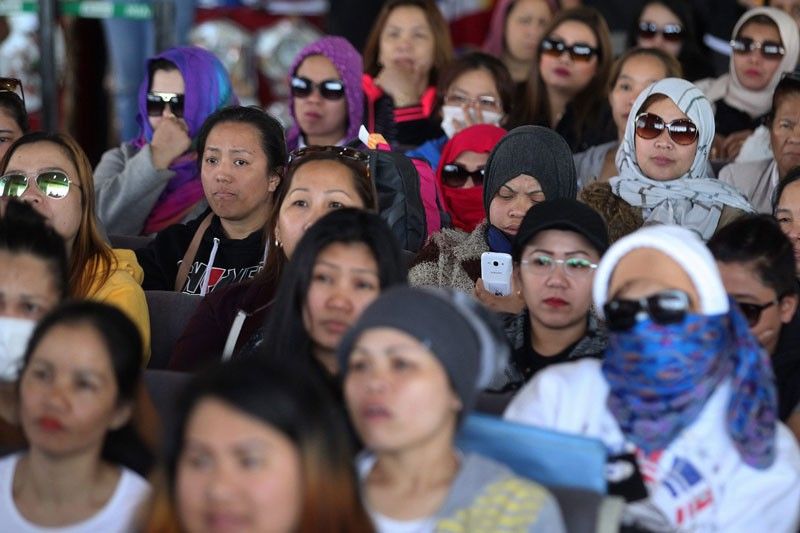Philippines among top remittance recipients in 2018 — World Bank

MANILA, Philippines — The Philippines is among the top recipients of money transfers in 2018, which also saw remittances to poor and developing countries hit a fresh record and should become their largest source of external financing this year, the World Bank said Tuesday.
But many banks and money transfer operators charged too much, cutting into the gains of migration, the bank said.
In a statement, the Washington-based multilateral lender reported that money sent home by Filipino migrant workers and others rose to $34 billion in 2018.
However, growth in remittances in the Philippines was slower due to a drop in private transfers from the Gulf countries, the World Bank said.
Aside from the Philippines, other top remittance recipients were India with $79 billion, followed by China ($67 billion), Mexico ($36 billion) and Egypt ($29 billion).
Money transfers reached an estimated $529 billion to low- and middle-income countries last year, up 9.6% from the year before, which had also been a record.
Such money transfers should hit $550 billion this year, making them the largest source of external finance, according to the bank.
Money transfers were up 12% to $131 billion for South Asia and almost 7% for East Asia, reaching $143 billion. Sub-Saharan Africa saw a 10% at $46 billion, according to the bank.
The United States economy grew strongly while outbound flows from Gulf countries and Russia also rose, according to the bank, which said this explained much of the gains.
Excluding China, the remittances amounted to $462 billion, significantly more than foreign direct investment over the period, which stood at $344 billion.
High charges
Among the development goals set by the United Nations in 2015 was reducing the cost of remittances to 3%.
However, banks on average were charging 11% in the first quarter of 2019 while post offices charged 7%.
"The high costs of money transfers reduce the benefits of migration," Dilip Ratha, the report's lead author, said in a statement.
"Renegotiating exclusive partnerships and letting new players operate through national post offices, banks and telecommunications companies will increase competition and lower remittance prices."
Another factor making money transfer costs rise are banks' efforts to avoid money-laundering and terrorism finance.
Some banks simply cease working with some money transfer organizations deemed too risky, according to the report.
"Banks indicate that risks to their reputation... deter them from having correspondent bank accounts," it said. — Ian Nicolas Cigaral with AFP
- Latest
- Trending



























